This article is a part of the Public Media Accountability Initiative, which supports investigative reporting at local media outlets around the country. It was produced in partnership with APM Reports and KOSU, with support from the Gertrude Blumenthal Kasbekar Fund.
The emergency contraceptive pill Plan B, which can prevent pregnancy following unprotected sex, has been available over the counter at most American pharmacies for more than a decade. But in more than 100 federally funded clinics and pharmacies run by or on behalf of Native American tribal nations, the medication is harder to access — if it’s available at all.
An investigation by APM Reports, Type Investigations and KOSU found 54 tribal clinics spread across 11 states that do not provide emergency contraception. They were in Alaska, Arizona, California, Florida, Louisiana, Michigan, Minnesota, Montana, Nebraska, Oklahoma and Washington. Another 51 clinics impose limits on access — things such as age restrictions or needing to see a nurse or doctor first. Collectively, these clinics serve tens of thousands of women.
“It’s just sad,” said Pam Kingfisher, a consultant who has worked with the Native American Women’s Health Education Resource Center, which has been fighting for more than a decade to expand access to Plan B. “[It’s] just crazy to me.”
The numbers, which echo the results of similar surveys conducted by the organization over the years, almost certainly understate the scope of the problem, as many of the more than 500 clinics and pharmacies reporters contacted around the country did not respond to calls or emails seeking confirmation of and comment on their policies.
The center argues that emergency contraception is a critical issue in Indian Country, because studies show Native women are almost three times more likely than non-Native women to be sexually assaulted during their lifetimes.
Thanks to the center’s lobbying efforts, clinics run by the federal Indian Health Service are required to offer Plan B without conditions. But tribal nations that use federal money to run their own clinics and pharmacies don’t face the same requirement, according to a written statement provided by the IHS. The statement said that the tribal facilities are, however, “encouraged” to make Plan B available without barriers.
Independent, tribally run health care systems were made possible by the Indian Self-Determination and Education Assistance Act of 1975 and subsequent amendments. Today, they account for more than 60% of the Indian Health Service’s budget and include 19 hospitals and more than 500 clinics and other health care facilities. Many tribal leaders view this as an important step toward self-governance. But the tribal control has also led to a patchwork of contraceptive services, leaving women and girls in crisis to navigate rules set by health directors at each tribal nation.
Most tribal officials and clinic staff declined to explain their emergency birth control policies. Those who did offered varying explanations for limiting access. Some said there wasn’t enough demand for the medication to justify keeping perishable pills in stock just to see them go to waste.
“I don’t have anything against it,” said Gary Adams, the pharmacist for the Chitimacha Tribe in Louisiana. He said he used to stock the pills but tossed them years ago after they expired. He hasn’t ordered any since, because there were no requests for it during his eight years working there. “We’re a small tribal pharmacy. We have a limited budget,” he explained.
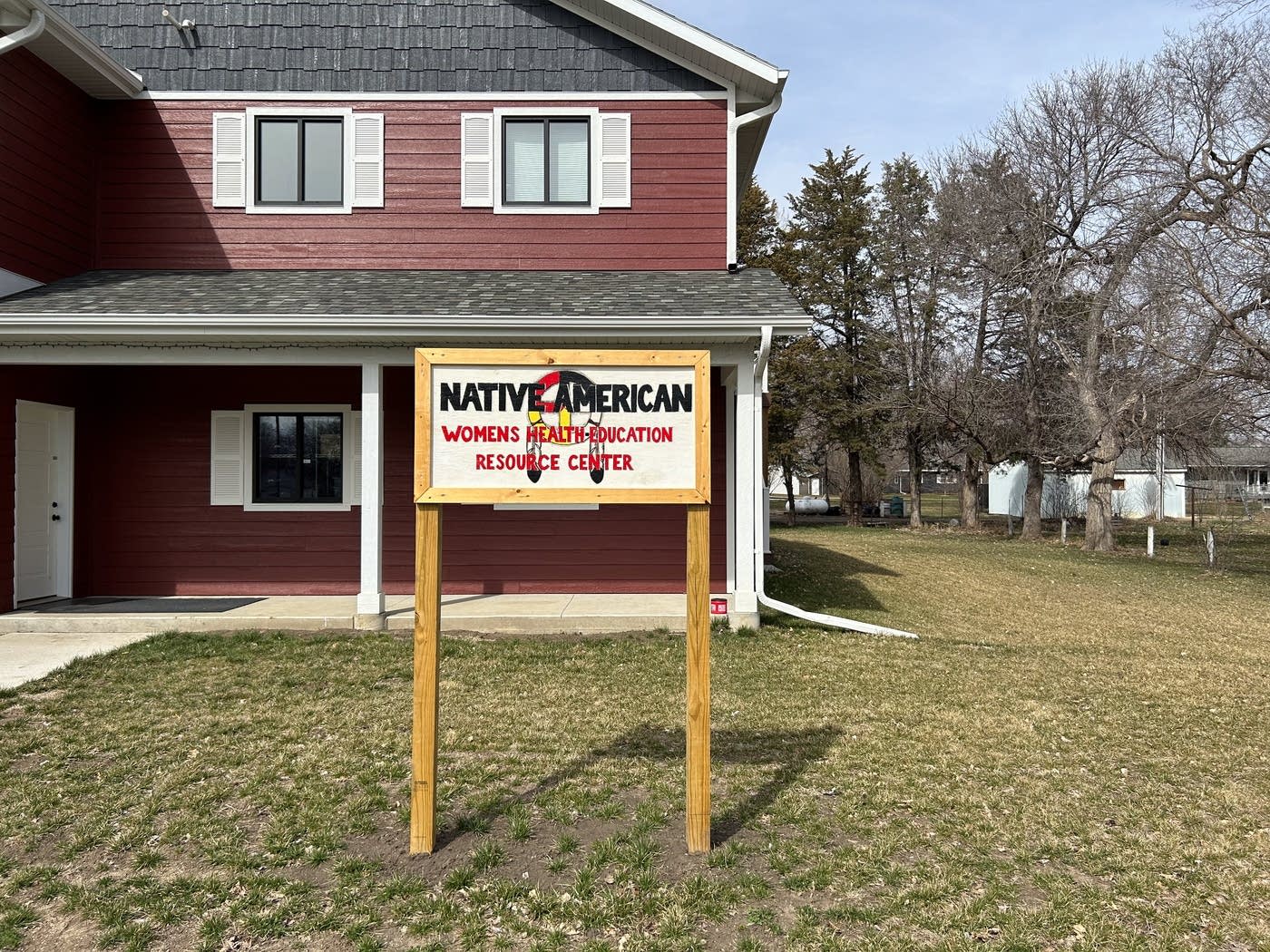
The Native American Women’s Health Education Resource Center’s offices in Lake Andes, South Dakota, has been fighting to expand access to Plan B for more than a decade. Image: Allison Herrera | APM Reports
For others, the limitations appeared to reflect clinic staff’s personal feelings.
“If I suspect this person is … a little bit more promiscuous or whatever, then I will tell them to have a doctor’s appointment,” said an employee at a tribal health center in Nevada, who asked not to be named. “Let’s say this person gets it this month, and two weeks later she needs it again. Well then at that point, I will call the practitioner, and they’ll say, ‘Oh, she needs an appointment.’”
Getting a prescription may seem like a minor inconvenience, but it can make some women and girls less likely to obtain the medication, according to the Native American Women’s Health Education Resource Center. It also delays treatment, which can increase the risk of pregnancy, because patients have just a few days to take emergency contraceptives before they become ineffective.
Alaska, with its vast geography and sparse population, poses special challenges for women seeking emergency contraceptives. More than a third of the clinics where reporters found women had to overcome extra hurdles to access Plan B were in the state. The remote villages where many Alaska Natives live often have no doctors or pharmacists, and medications are dispensed by community health aides, who are required to have a high school education and pass a state test.
“Depending on the health aide’s level of training, they may be able to distribute medications under standing orders or she/he may need to consult with a provider to get an order,” said Mary Horgan, a spokesperson for Yukon-Kuskokwim Health Corporation, which serves 58 rural communities in Southwest Alaska. “Consultations are a routine part of practice and are accomplished remotely.”
Many of the tribally run or funded clinics that the investigation confirmed don’t offer Plan B were concentrated in just two states: California and Oklahoma.
In California, nearly 30 clinics either don’t offer Plan B or offer it only with restrictions. Riverside/San Bernardino County Indian Health Incorporated, which serves the Pechanga Band, the San Manuel Band of Mission Indians and the Agua Caliente Band of Cahuilla Indians, does not offer it. In Northern California, four of the clinics operated by Mariposa, Amador, Alpine, Calaveras & Tuolumne Health Board Inc. do not provide Plan B.
Spokespeople for the organizations did not explain their policies when reporters asked about them.
In southeastern Oklahoma, emergency contraception remains unavailable at clinics and pharmacies operated by the Chickasaw, one of the largest tribal nations in the state, which serves thousands of people. The Muscogee Nation and the Choctaw Nation offer Plan B only to victims of sexual assault. Together, the three reservations cover more than 23,000 square miles.
A spokesperson for the Muscogee Nation, whose reservation includes most of Tulsa, noted that women and girls can buy the medication at a commercial pharmacy. A dose of Plan B can cost as much as $50 at those pharmacies. That can put it out of reach for low-income women and girls, especially in rural parts of the reservation such as Okfuskee County, where more than 26% of people live below the poverty line. If the tribal nation chose to provide the medication, it would be free.
“My question is: How do we get the administrative staff out of the way and just offer it?” said Dode Barnett, who sits on the Muscogee Nation Council for the Creek District and is critical of her tribe’s policy. “Make it part of normal health care.”
Barnett said Muscogee Nation tribal leaders have told her they are considering expanding Plan B access in the near future. A tribal nation spokesman did not respond to questions about Barnett’s comments.
The Cherokee Nation, which previously required a prescription for Plan B, recently revised its guidelines to remove that requirement for patients 17 and older. Its medical director said the tribe started talking about expanding access to the medication because of new abortion restrictions in Oklahoma.
The state enacted one of the strictest abortion bans in the country in 2022. Women there aren’t allowed to terminate a pregnancy except to save a mother’s life.
“The stakes for preventing pregnancy are incredibly high, especially for people who live in states with complete abortion bans, or very strong abortion restrictions,” said Kelly Cleland, executive director of the American Society for Emergency Contraception. “It’s the only thing you can do after unprotected sex to prevent pregnancy.”
Emergency contraceptives do not terminate a pregnancy, as abortion drugs do. Instead, the medication prevents or delays the release of an egg from an ovary. In spite of that, Plan B is sometimes confused with abortion medication, contributing to the stigma and barriers to availability.
A 2024 study from the University of Southern California found that states that enacted restrictive abortion policies saw a decline in emergency contraceptive use.
“It’s part of colonization … and the whole Christian right that has influenced our tribes,” said Charon Asetoyer, a Comanche Nation citizen and CEO of the Native American Women’s Health Education Resource Center. “The farther southeast you go into the Bible Belt — you know, they get kind of hostile about those issues.”
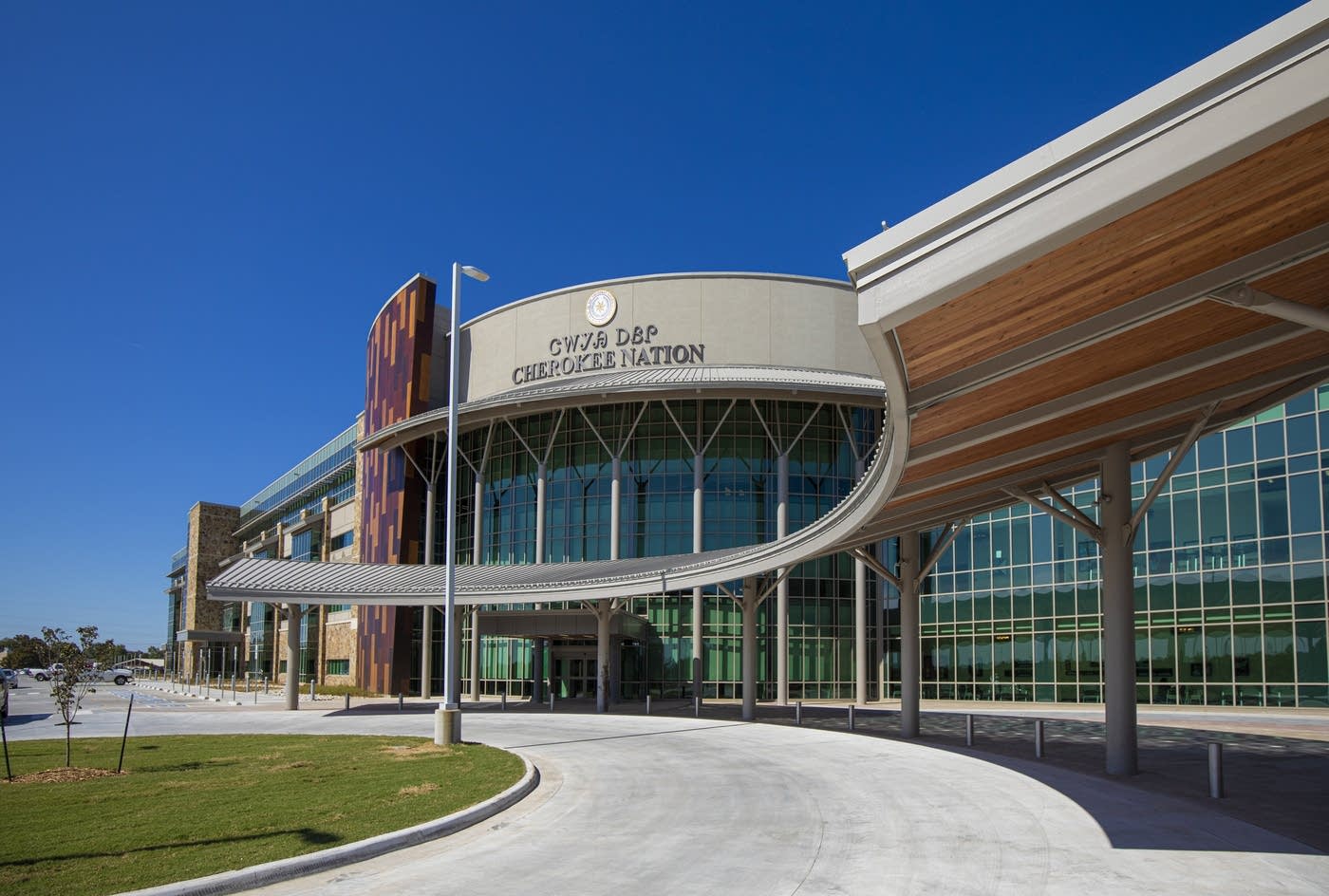
The Cherokee Nation’s new medical complex in Tahlequah, Oklahoma.
Image: Courtesy of the Cherokee Nation
‘Somebody knew who I was’
Andrea was only 16 when the condom failed. She knew she could be facing an unplanned pregnancy and was not ready to be a parent.
“I was pretty worried,” she said, recalling the experience 10 years later.
She was a junior at Sequoyah Schools, a boarding school run by the Cherokee Nation in Tahlequah, Oklahoma. It was 2014. Roe v. Wade was still the law then, and she was prepared to pursue an abortion if she had to, but she knew there was another option, if she could find it in time: Plan B.
But Andrea (not her real name) wasn’t comfortable telling her mother what happened. So she had to wait until she got to school on Monday to try to find the medication. She didn’t have much time. Plan B works best when taken within three days, and it had been almost that long since the sexual encounter.
The nurse at Sequoyah Schools referred her to a resident assistant who took her to the women’s clinic at nearby Hastings Hospital, which is also run by the Cherokee Nation. The staff there sent her to the on-site pharmacy.
She still remembers how crowded the small waiting room was, and she felt like everyone there could hear her ask the pharmacist for Plan B.
“This is a really small town,” said Andrea, who grew up in Tahlequah and is a citizen of the Cherokee Nation. “There’s a pretty good chance that they knew who I was — that somebody knew who I was.”
The pharmacist, Andrea said, made eye contact with her and told her she needed a doctor’s prescription to access the drug. That was the tribal nation’s policy, even though the U.S. Food and Drug Administration had dropped that requirement a year earlier. Andrea felt a woman at the window next to her was “judging me for, you know, sleeping around as a 16-year-old or whatever.”
By this time, Andrea had already had to share her situation with the school nurse, someone who worked at the dorm, the people at the women’s clinic and the pharmacist.
It took a few hours, but Andrea eventually got the prescription. She remembers the pharmacist finally handing her a package containing a tiny white tablet.
“I joked with them that it was such a small pill for all that packaging,” Andrea said.
She immediately took the medication and didn’t get pregnant. It was a huge relief.
Andrea was willing to do what it took to get the medication, but she says many young women she grew up with wouldn’t have been.
“Somebody that might not have as much inner independence … might not know where to turn … might not be able to advocate for themselves that way,” Andrea said.
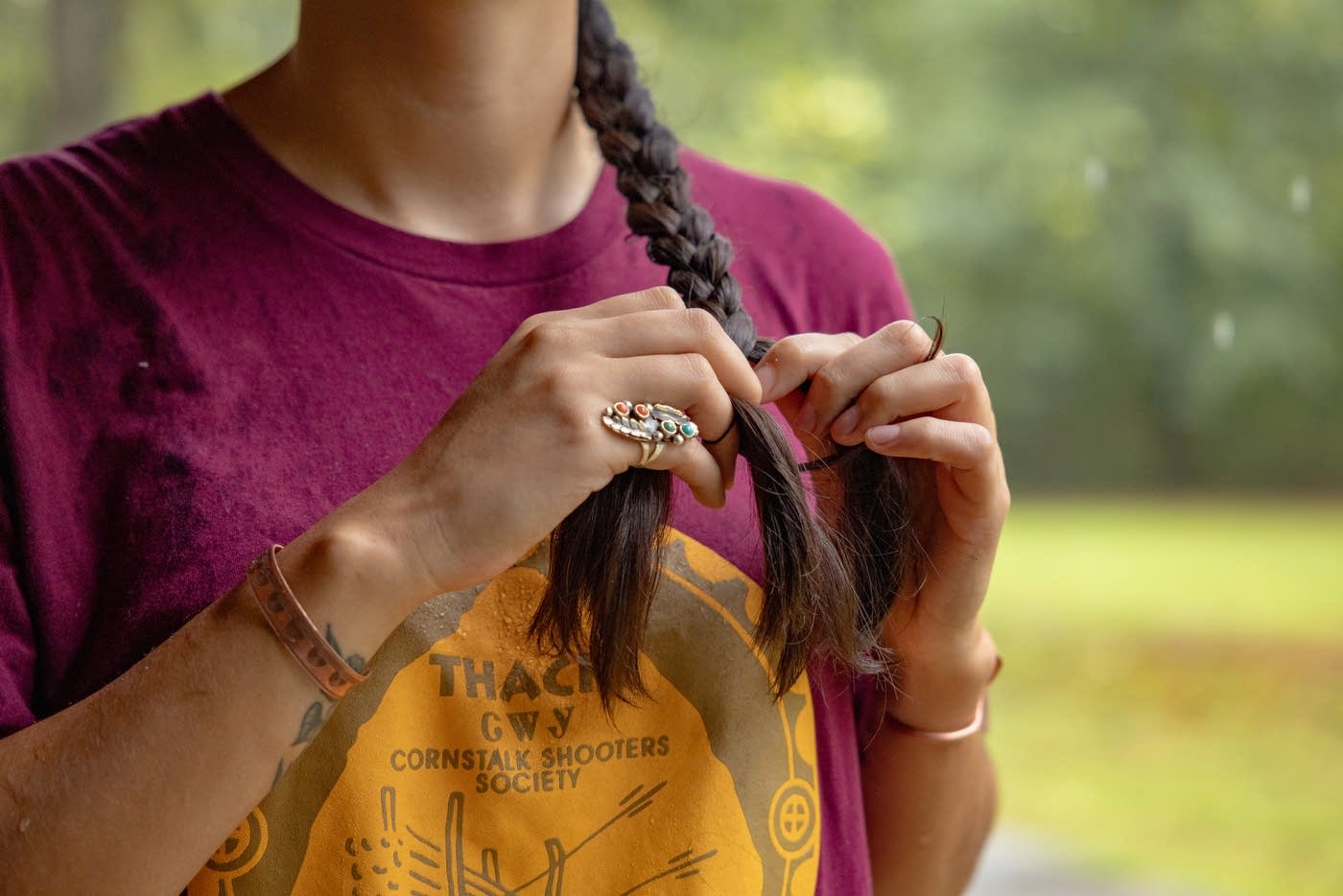
Andrea was 16 when she found out she needed emergency contraception. She felt that one of the women at the Cherokee Nation’s pharmacy was “judging” her. Image: Brittany Bendabout for Type Investigations
‘All the way to the White House’
Around the same time Andrea was trying to get one pill, Asetoyer and the Native American Women’s Health Education Resource Center were leading a campaign to give all Indigenous women access to the medication nationwide.
“It was a fight that took us all the way to the White House,” said Asetoyer, who works out of the organization’s headquarters on the Yankton Sioux Tribe reservation in Lake Andes, South Dakota.
Although the FDA made Plan B available without a prescription for patients 18 years and older in 2006, Asetoyer’s organization found in 2009 that few pharmacies run by the Indian Health Service provided it over the counter.
“Knowing that we’re the largest group [of] women that are sexually assaulted, you would think you’d want all the services possible to help us through this. … And we can’t get Plan B,” Asetoyer said.
The center launched a public awareness campaign in 2010, surveyed clinics, lobbied members of Congress and even convinced Sen. Barbara Boxer, D-Calif., to hold a hearing about it.
In 2015, those years of hard work led to an audience at the White House with Obama administration officials. As a result of that and a subsequent meeting with officials from the Indian Health Service, Asetoyer got an email saying that the agency was adding Plan B to its list of approved medications.
It was a major victory, but not a complete one.
Between 2014 and 2017, Asetoyer’s organization conducted “secret shopper surveys” that showed access to Plan B remained difficult for women who relied on clinics run by the tribal nations, especially those in Oklahoma. Out of 34 clinics surveyed there, more than half either did not provide emergency contraception or provided it with restrictions. The center found that clinics at the Muscogee, Chickasaw and Choctaw tribal nations concentrated in Southeast Oklahoma were among those not offering Plan B — or offering it with restrictions such as needing to see a nurse or doctor.
Seven years later, reporters found virtually the same thing.
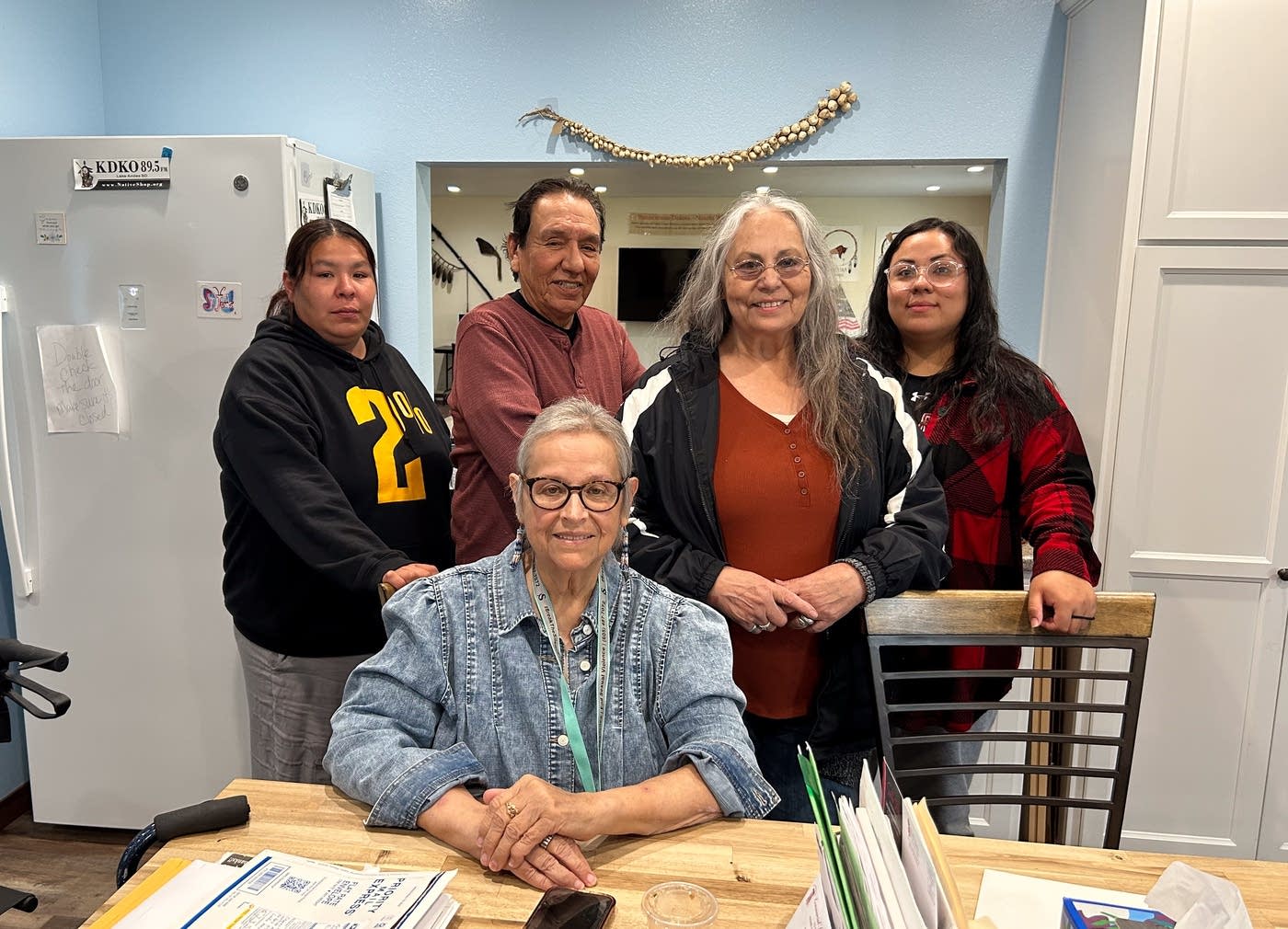
Charon Asetoyer (seated, surrounded by staff) is the executive director of the Native American Women’s Health Education Resource Center, an organization that advocates for Indigenous women’s reproductive rights. The organization is based in Lake Andes, South Dakota. Image: Allison Herrera | APM Reports
Asetoyer and Kingfisher haven’t given up. In 2020, Kingfisher introduced a resolution to the National Congress of American Indians, an organization that advocates for Indigenous people, to ensure over-the-counter access to contraceptives at tribally run health clinics. It passed, as a similar measure had eight years earlier. However, these resolutions are non-binding, Kingfisher said. Tribal nations can either adhere to them or ignore them.
“This is harm reduction,” Kingfisher said. “This saves our girls. This saves our babies and families.”
Asetoyer wants more accountability for tribal nations who contract with the Indian Health Service to set up their own clinics. She thinks they should have to provide emergency contraceptives over the counter without restrictions such as an age limit or having to get a prescription.
“The [tribally run] clinics feel they can do whatever they want to do, because they’ve contracted the money,” Asetoyer said.
‘What would Wilma do?’
While many tribal clinics in Oklahoma still limit access to emergency contraception, one of the largest tribal nations in the country recently moved to expand it. The Cherokee Nation no longer requires a prescription for patients 17 and older. Girls 16 and younger still need to see a provider for additional education and to screen for potential sexual abuse.
“We felt like we needed to make sure that we were being proactive in taking care of our female patients that may need this medication,” said Dr. Beth Harp, who practices family medicine and is a Cherokee citizen. Harp has served as the executive medical director for Cherokee Nation Health Services since 2023.
Harp said the tribe changed its guidelines in 2022.
However, when reporters first surveyed Cherokee Nation clinics in 2023, staff members at some of them seemed unaware of the new guidelines and said the medication was available only with a prescription.
“We recognize that we need to do some internal communication and reinforcement of education related to emergency contraception and are working on both those items to ensure our Cherokee citizens and tribal patients continue to get the best care possible,” Cherokee Nation spokesperson Julie Hubbard wrote in an email.
The tribe has dispensed 41 doses of Plan B in the past year. The Cherokee Nation has one of the largest health care systems in northeastern Oklahoma, serving 141,000 tribal citizens. It also runs a medical school in partnership with Oklahoma State University.
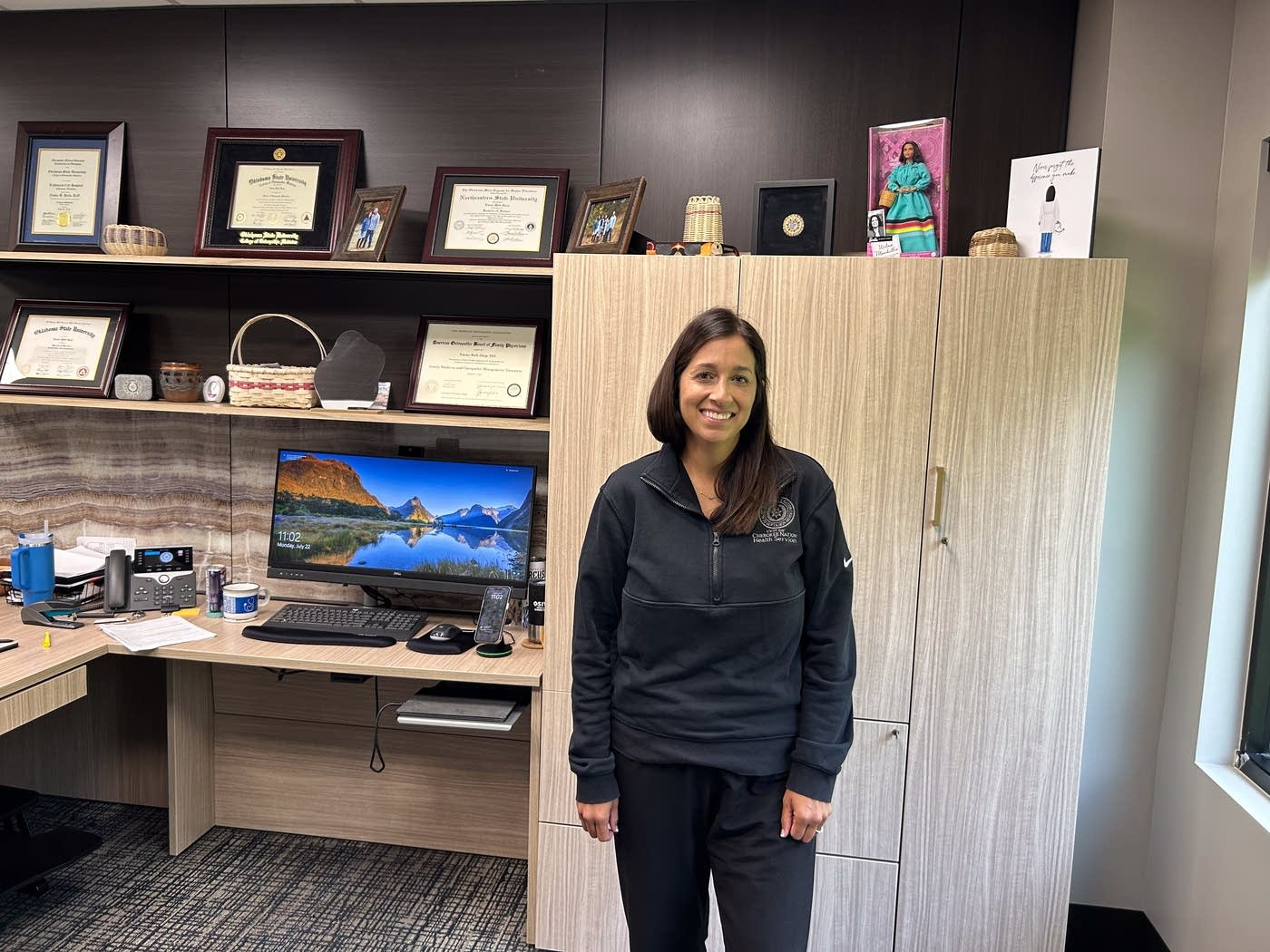
Dr. Beth Harp, the Cherokee Nation’s executive medical director, in her office in Tahlequah, Oklahoma. As a young girl, Harp looked up to the tribe’s principal chief at the time, Wilma Mankiller. Harp sees destigmatizing emergency contraceptives as a continuation of Mankiller’s legacy. Image: Allison Herrera | APM Reports
“We continue to say, ‘What else can we do to make this accessible to our girls?’” Harp said.
Harp grew up idolizing Wilma Mankiller, the Cherokee Nation’s first female leader, who championed reproductive rights for Cherokee women during the 1980s and ’90s.
“‘What would Wilma do?’” she mused, explaining that she wants to reduce the stigma associated with contraceptives. “I think she would be in those communities with those families, and with the moms, and with the children. I think that’s where she’d be doing those efforts to destigmatize.”
Harp joked with a colleague that she would even be willing to put her own face on a billboard advertising Plan B if it would help people know it is available.
Today, Andrea is 27, an active citizen of the Cherokee Nation. She attended college and works for a culturally centered wellness program in Tahlequah. She likes to connect young people with their history, and for now she has chosen not to have children.
Looking back on the crisis she faced in high school, Andrea is glad she was able to access emergency contraceptives.
She said that if she had gotten pregnant, she might have been forced to move back home, which she says wasn’t a good situation for her at the time.
A decade later, she still thinks about the ordeal at Hastings Hospital, and she’s happy it will now be easier for young Cherokee women to access Plan B.
“Just don’t be ashamed or embarrassed,” she said. “This is our own personal life, and no one can tell us what to do with our own bodies.”